Marvin Gaye
Marvin Gaye (born Marvin Pentz Gay, Jr., April 2, 1939 – April 1, 1984) was a legendary American soul and R&B singer-songwriter, instrumentalist, record producer and performer who gained international fame as an artist on the Motown label in the 1960s and 1970s.
Beginning his career at Motown in 1961, Gaye quickly became Motown's top solo male artist and scored numerous hits during the 1960s, among them "Stubborn Kind of Fellow", "How Sweet It Is (To Be Loved By You)", "I Heard It Through the Grapevine", and several hit duets with Tammi Terrell, including "Ain't No Mountain High Enough" and "You're All I Need to Get By", before moving on to his own form of musical self-expression. Gaye is notable for fighting the hit-making, but creatively restrictive, Motown record-making process, in which performers and songwriters and record producers were generally kept in separate camps.[1] With his successful 1971 album What's Going On and subsequent releases including Trouble Man and Let's Get It On, Gaye, who was a part-time songwriter for Motown artists during his early years with the label, proved that he could write and produce his own singles without having to rely on the Motown system. This achievement (along with those of contemporaries, Curtis Mayfield and George Clinton), would pave the way for the successes of later self-sufficient singer-songwriter-producers in African American music, such as Stevie Wonder, Luther Vandross, and Babyface.
During the 1970s, Gaye would release several other notable albums, including Let's Get It On and I Want You, and had hits with singles such as "Let's Get It On", "Got to Give It Up", and, in the early 1980s, "Sexual Healing". By the time of his death in 1984 at the hands of his clergyman father, Gaye had become one of the most influential artists of the soul music era.
Contents[hide]
1 Biography
1.1 Early life
1.2 Early music career
1.3 Early success
1.4 Tammi Terrell
1.5 What's Going On
1.6 Continued success in music
1.7 Later years and his death
1.8 Personal life
2 Legacy, tributes and award recognitions
3 Trivia and myths
4 Discography
4.1 U.S. and UK Top Ten Singles
4.2 Top Ten Albums
4.3 Sound clips
5 Notes
6 References
7 Further reading
8 See also
9 External links
//
[edit] Biography
Marvin Gaye's 1966 LP Moods of Marvin Gaye
[edit] Early life
Marvin Gaye was born the first son and second eldest of four children to Rev. Marvin Pentz Gay, Sr and Alberta Cooper. His sisters, Jeanne and Zeola, younger brother Frankie and Marvin lived in the segregated section of Washington, D.C.'s Deanwood neighborhood in the northeastern section of the city. As a teen, he caddied at Columbia Country Club just outside of D.C. in Chevy Chase, Maryland. Gaye's father preached in a Seventh-day Adventist Church sect called the House of God, which went by a strict code of conduct and mixed teachings of Orthodox Judaism and Pentecostalism.
After dropping out of Cardozo High School, Gaye joined the United States Air Force. He was discharged because he refused to follow orders.
After starting his recording career at Motown Records, he changed his name from Marvin Gay to Marvin Gaye, adding the 'e' to separate himself from his father and in admiration of his idol, Sam Cooke, who also added an 'e' to his last name ([1]).
[edit] Early music career
Gaye began his career in several doo wop groups, settling on The Marquees, a popular D.C. group. With Bo Diddley, The Marquees released a single, "Wyatt Earp", in 1958 on Okeh Records and were then recruited by Harvey Fuqua to become The Moonglows. "Mama Loocie", released in 1959 on Chess Records, was Gaye's first single with the Moonglows and his first recorded lead. After a concert in Detroit, the "new" Moonglows disbanded and Fuqua introduced Gaye to Motown Records president Berry Gordy. He signed Gaye first as a session drummer for acts such as The Miracles, The Contours, Martha and the Vandellas, The Marvelettes and others. Most notably, he was the drummer on The Marvelettes' 1961 number one hit "Please Mr. Postman" and Little Stevie Wonder's 1963 number one hit "Fingertips Pt. 2". He also co-wrote Martha & the Vandellas' 1964 hit "Dancing in the Street" and The Marvelettes' 1962 hit "Beechwood 4-5789". After much pleading, Gaye was signed as a singer less than a year later.
Popular and well-liked around Motown, Gaye already carried himself in a sophisticated, gentlemanly manner and had little need of training from Motown's in-house Artist Development director, Maxine Powell.
[edit] Early success
Gaye issued his first solo recording, The Soulful Moods of Marvin Gaye, in June of 1961, which was the first album issued by the Motown record label besides The Miracles' Hi, We're the Miracles! album. An album of Broadway standards and jazz-rendered show tunes, the record failed to chart and Motown issued three singles by Gaye that also failed to chart. After arguing over direction of his career with Gordy, Gaye eventually agreed to conform to record the more R&B-rooted sounds of his label mates and contemporaries issuing the single, "Stubborn Kind of Fellow" in July of 1962. The record, co-written by Gaye and produced by friend William "Mickey" Stevenson and which was an autobiographical jab at Gaye's moody behavior, became a top ten hit on the Hot Soul Singles chart and started Gaye's rise. The single would be followed by his first Top 40 singles "Hitch Hike", "Pride & Joy" and "Can I Get a Witness", all of which were charted successes for Gaye in 1963. The success continued with the 1964 singles "You Are a Wonderful One", which featured background work by The Supremes, "Try It Baby", which featured backgrounds from The Temptations, "Baby Don't You Do It" and "How Sweet It Is (To Be Loved By You)", which became a signature song of his. His work with Smokey Robinson on the 1966 album, Moods of Marvin Gaye, spawned two consecutive top ten singles in "I'll Be Doggone" and "Ain't That Peculiar", which became another signature song of his.
[edit] Tammi Terrell
Main article: Tammi Terrell
A number of Gaye's hit singles for Motown were duets with female artists, such as Mary Wells, Kim Weston and Tammi Terrell; the first Gaye/Wells album, 1964's Together, was Gaye's first charting album. Terrell and Gaye in particular had a good rapport and their first album together, 1967's United, birthed the massive hits "Ain't No Mountain High Enough" (later covered by Diana Ross and more recently, by former Doobie Brothers singer, Michael McDonald) and "Your Precious Love". Real life couple Nickolas Ashford and Valerie Simpson provided the writing and production for the Gaye/Terrell records; while Gaye and Terrell themselves were not lovers (though rumors persist that they may have been), they convincingly portrayed lovers on record; indeed Gaye sometimes claimed that for the durations of the songs he was in love with her. On October 14, 1967, Terrell collapsed into Gaye's arms onstage while they were performing at the Hampton University homecoming in Virginia (contrary to popular belief, it was not Hampden-Sydney College, also in Virginia). She was later diagnosed with a brain tumor and her health continued to deteriorate.
Motown decided to try and carry on with the Gaye/Terrell recordings, issuing the You're All I Need album in 1968, which featured the hits "Ain't Nothing Like the Real Thing" and "You're All I Need to Get By". By the time of the final Gaye/Terrell album, Easy in 1969, Terrell's vocals were performed mostly by Valerie Simpson. Two tracks on Easy were archived Terrell solo songs with Gaye's vocals overdubbed onto them.
Terrell's illness put Gaye in a depression; when his Norman Whitfield-produced "I Heard It Through the Grapevine" (sample (help·info)) became his first #1 hit and the biggest selling single in Motown history to that point with four million copies sold, he refused to acknowledge his success, feeling that it was undeserved. Meanwhile, Gaye's marriage with Anna was crumbling and he continued to feel irrelevant, singing endlessly about love while popular music underwent a revolution and began addressing social and political issues. His work with Norman Whitfield would result in similar success with the singles "Too Busy Thinking About My Baby" and "That's the Way Love Is".
Marvin Gaye (left) and James Jamerson perform "What's Goin' On" live.
[edit] What's Going On
Tammi Terrell died of a tumor on March 16, 1970. Devastated by her death, Marvin was so emotional at her funeral that he'd talk to the remains as if she were going to respond. Gaye subsequently went into seclusion, and did not perform in concert for nearly two years. He tried various spirit-lifting diversions, including a short-lived attempt at a football career with the Detroit Lions. He trained hard, but the team's managers turned him down without a tryout. He continued to feel pain, with no form of self-expression. As a result, he entered the studio on June 1, 1970 and recorded the songs "What's Going On", "God is Love", and "Sad Tomorrows" - an early version of "Flying High (In the Friendly Sky)".
Gaye wanted to release "What's Going On" (sample (help·info)). Motown head Berry Gordy refused, however, calling the single "uncommercial". Gaye refused to record any more until Gordy gave in and the song became a surprise hit in January 1971. Gordy subsequently requested an entire album of similar tracks from Gaye.
The What's Going On album became one of the highlights of Gaye's career and is today his best-known work. Both in terms of sound (influenced by funk and jazz) and lyrical content (heavily political) it was a major departure from his earlier Motown work. Two more of its singles, "Mercy Mercy Me (The Ecology)" and "Inner City Blues (Make Me Wanna Holler)", became Top 10 pop hits and #1 R&B hits. The album became one of the most memorable soul albums of all time and, based upon its themes, the concept album became the next new frontier for soul music. It has been called "the most important and passionate record to come out of soul music, delivered by one of its finest voices".[2]
1973's Let's Get It On LP is among Marvin Gaye's most noted works.
[edit] Continued success in music
After the success of the soundtrack to the blaxploitation film, Trouble Man in 1972, Marvin decided to switch topics from social to sensual with the release of Let's Get It On (sample (help·info)). The album was a rare departure for the singer for its blatant sensualism inspired by the success of What's Going On and Marvin's need to produce himself in his own way. Yielded by the smash title track and subsequent other hits such as "Come Get to This", "You Sure Love to Ball" and "Distant Lover". Let's Get It On became Marvin Gaye's biggest selling album during his lifetime, surpassing What's Going On. Also, with the title track, Gaye broke his own record at Motown by surpassing the sales of "I Heard It Through the Grapevine". The album would be later hailed as "a record unparallelled in its sheer sensuality and carnal energy."[3]
Gaye began working on his final duet album, this time for Diana Ross for the Diana & Marvin project, an album of duets that began recording in 1972, while Ross was pregnant with her second child. Gaye refused to sing if he couldn't smoke in the studio, so the duet album was recorded by overdubbing Ross and Gaye at separate studio session dates. Released in the fall of 1973, the album yielded the US Top 20 hit singles "You're a Special Part of Me and "My Mistake (Was to Love You)" as well as the UK versions of two The Stylistics's "You Are Everything" at #5 and "Stop, Look, Listen (To Your Heart)" at #25, respectively.
In 1976, Gaye released the I Want You LP, which yielded the number-one R&B single, "I Want You" and the modest charter, "After the Dance." and produced erotic album tracks such as "Since I Had You" and "Soon I'll Be Loving You Again" with its musical productions gearing Gaye towards more funky material.
[edit] Later years and his death
In 1977, Gaye released the seminal funk single, "Got to Give It Up", which went to number-one on both the pop, R&B and dance singles charts and helped his Live at the London Palladium album sell over two million copies and becoming one of the top ten best-selling albums of the year. The following year, after divorcing his first wife Anna, he agreed to remit a portion of his salary and sales of his upcoming album to his ex for alimony. The result was 1978's Here, My Dear, which addressed the sour points of his marriage to Anna and almost led to Anna filing an invasion of privacy against Marvin, though she later reversed that decision. That album tanked on the charts (despite its later critical reevaluation) however, and Gaye struggled to sell a record. By 1979, besieged by tax problems and drug addictions, Gaye filed for bankruptcy and moved to Hawaii where he lived in a bread van. In 1980, he signed with British promoter Jeffrey Kruger to do concerts overseas with the promised highlight of a Royal Command Performance at London's Drury Lane in front of Princess Margaret. Gaye failed to make the stage on time and by the time he came, everyone had left. While in London, Marvin worked on In Our Lifetime?, a complex and deeply personal record. When Motown issued the album in 1981, Gaye was livid: he accused Motown of editing and remixing the album without his consent, releasing an unfinished song ("Far Cry"), altering the album art he requested and removing the question mark from the title (rendering the intended irony imperceptible).
After being offered a chance to clear things out in Oostende, Belgium, he permanently moved there in 1981. Still upset over Motown's hasty decision to release In Our Lifetime, he negotiated a release from the label and signed with Columbia Records in 1982, releasing Midnight Love that year. The album included Marvin's final big hit, "Sexual Healing" (sample (help·info)). The song gave Gaye his first two Grammy Awards (Best R&B Male Vocal Performance, Best R&B Instrumental) in February 1983. The following year, he won a Grammy nomination for Best Male R&B Vocal Performance again, this time for the Midnight Love album itself. In February 1983, Gaye gave an emotional performance of The Star-Spangled Banner at the NBA All-Star Game, held at The Forum in Inglewood, California, accompanied by a drum machine. In March, 1983, he gave his final performance in front of his old mentor and label for Motown 25, performing "What's Going On". He then embarked on a U.S. tour to support his album. The tour, ending in August 1983, was plagued by health problems and Gaye's bouts with depression, and fear over an alleged attempt on his life.
When the tour ended, he isolated himself by moving into his parents' house. He threatened to commit suicide several times after numerous bitter arguments with his father, Marvin, Sr. On the E! True Hollywood Story about Gaye, singer Little Richard revealed that Gaye had premonitions of his murder in his final years of life. On April 1, 1984, one day before his forty-fifth birthday, Gaye's father shot and killed him after an argument that had started after Marvin's parents argued over misplaced business documents. Marvin, Sr. later was sentenced to six years of probation after pleading guilty to manslaughter. Charges of first-degree murder were dropped after doctors discovered Marvin, Sr. had a brain tumor. Later serving his final years in a retirement home, he died of pneumonia in 1998.
After some posthumous releases cemented his memory in the popular consciousness, Gaye was inducted into the Rock and Roll Hall of Fame in 1987. He later was inducted to Hollywood's Rock Walk in 1989 and was given a star on the Hollywood Walk of Fame in 1990.
[edit] Personal life
Gaye married twice. His first marriage, to Berry Gordy, Jr.'s sister Anna Gordy(who was seventeen years his senior), who inspired some of Gaye's earlier hits including "Stubborn Kind of Fellow" and "You Are a Wonderful One", produced an adopted son, Marvin Pentz Gaye III (b. June 8, 1965). Troubled from the start, the marriage permanently imploded after Gaye began courting Janis Hunter(seventeen years his junior), the seventeen-year-old daughter of hipster jazz icon Slim Gaillard, in 1973 following the release of his Let's Get It On album. Hunter was also an inspiration to Gaye's music, particularly his entire post-What's Going On/Trouble Man period which included Let's Get It On and I Want You. Their relationship produced two children, Nona Marvisa Gaye (b. September 4, 1974) and Frankie Christian Gaye (b. November 16, 1975). Marvin and Janis married after Marvin's divorce from Anna was finalized. Shortly after their October 1977 wedding in Baton Rouge, Louisiana, however, they separated due to growing tensions between them, finally divorcing in February 1981.
After Gaye's death, two of his children followed in his footsteps to show business: eldest son Marvin Pentz Gaye III became a record producer and has control of his estate, while Gaye's only daughter, Nona, became a model, an actress and a singer. His youngest child, son Frankie Christian, has not followed his siblings into show business.
[edit] Legacy, tributes and award recognitions
Marvin Gaye on the cover of his 1969 LP I Heard It Through the Grapevine, originally released in 1968 as In the Groove.
Even before Gaye died, there had already been tributes to the singer. In 1983, the British group Spandau Ballet recorded the single "True" as a partial tribute to both Gaye and the Motown sound he helped establish. A year after his death, The Commodores made reference to Gaye's death in their 1985 song Nightshift as did the Violent Femmes in their 1988 song "See My Ships". Former Motown alum Diana Ross also paid tribute with her Top 10 pop single "Missing You" (1985) while the soul band Maze featuring Frankie Beverly recorded the tribute song, "Silky Soul" (1989), in honor of their late mentor. He was also mentioned in the next-to-last choral verse of George Michael's record, "John & Elvis are Dead", featured on his album, Patience.
In 1995, certain artists including Madonna, Stevie Wonder, Speech of the group Arrested Development and Gaye's own daughter Nona, paid tribute to Gaye with the MTV-assisted tribute album, Inner City Blues: The Music of Marvin Gaye, which also included a documentary of the same name that aired on MTV. In 1999, R&B artists such as D'Angelo, Erykah Badu, Brian McKnight and Will Downing paid their respects to Gaye in a tribute album, Marvin Is 60. In October 2001, an all-star cover of "What's Going On", produced by Jermaine Dupri, was issued as a benefit single, credited to "Artists Against AIDS Worldwide". The single, which was a reaction to the tragedy of the September 11, 2001 attacks as well as to the AIDS crisis, featured contributions from a plethora of stars, including Christina Aguilera, Mary J. Blige, Bono, Mariah Carey, Destiny's Child, Fred Durst of Limp Bizkit, Nelly Furtado, Alicia Keys, Aaron Lewis of the rock group StainD, Nas, *NSYNC, P. Diddy, ?uestlove of The Roots, Britney Spears, and Gwen Stefani [2]. The "What's Going On" cover also featured Nona, who sang one of the song's memorable lines, Father, father/we don't need to escalate.
In 1987, Marvin was inducted posthumously to the Rock & Roll Hall of Fame with Marvin's first wife Anna Gordy and son Marvin III accepting for Marvin. He was later given his own star on the Hollywood Walk of Fame in 1990. In 1996, he was posthumously awarded with the Grammy Award for Lifetime Achievement Award and was honored in song by admirers Annie Lennox and Seal. In 2004, Rolling Stone Magazine ranked him #18 on their list of the 100 Greatest Artists of All Time.[4]
Throughout his long career, Gaye scored a total of forty-one Top 40 hit singles on Billboard's Pop Singles chart between 1963 and 2001, sixty top forty R&B singles chart hits from 1962 to 2001, eighteen Top Ten pop singles on the pop chart, thirty-eight Top 10 singles on the R&B chart (according to latest figures from Joel Whitburns Top R&B/Hip-Hop Singles: 1942-2004, 2004), three number-one pop hits and thirteen number-one R&B hits and tied with Michael Jackson in total as well as the fourth biggest artist of all-time to spend the most weeks at the number-one spot on the R&B singles chart (52 weeks). In all, Gaye produced a total of sixty-seven singles on the Billboard charts in total spanning five decades including five posthumous releases.
The year a remix of Marvin's "Let's Get It On" was released to urban adult contemporary radio, "Let's Get It On" was certified gold by the RIAA for sales in excess of 500,000 units, making it the best-selling single of all time on Motown in the United States. Gaye's "I Heard It Through the Grapevine" holds the title of the best-selling international Motown single of all time, with high sales explained by a re-release in Europe following a Levi's 501 Jeans commercial in 1986.
In 2005, rock group A Perfect Circle released "What's Going On" as part of an anti-war CD titled eMOTIVe. The next year, it was announced that rock group the Strokes was going to cover Marvin's "Mercy Mercy Me (The Ecology)" on their next album. In October 2005, a discussion was delivered at Marvin's hometown of Washington, D.C.'s City Council to change the name of a park located at Marvin's childhood neighborhood from Watts Branch Park to Marvin Gaye Park and was soon offered so for $5 million to make the name change a reality. The park was renamed on April 2, 2006 on what would've been Marvin's sixty-seventh birthday.
A documentary about Gaye's life and death - What's Going On: The Marvin Gaye Story - was a UK/PBS USA co-production, directed by Jeremy Marre. Gaye is referenced as one of the supernatural acts to appear in the short story and later television version of Stephen King's Nightmares and Dreamscapes in You Know They Got a Hell of a Band.
A Marvin Gaye biopic, titled Marvin - The Marvin Gaye Story, is being set for production in 2007 by Producer Duncan McGillivray (Film by Humans Production Co., LLC) with singer Roberta Flack supervising on the music. It will be a full-scale, $40 million dollar biopic of the entire life story of Gaye.
A play co-composed by Gaye's baby sister Zeola about the singer is currently playing.
[edit] Trivia and myths
It has been said that Marvin did most of his vocals lying on his back.
[edit] Discography
For further information, see: Marvin Gaye discography.
[edit] U.S. and UK Top Ten Singles
The following singles reached the Top Ten of either the United States pop singles chart or the United Kingdom pop singles chart.
Year
Song title
US chart
UK chart
1963:
"Pride & Joy"
1964:
"How Sweet It Is (To Be Loved By You)"
1965:
"I'll Be Doggone"
1965:
"Ain't That Peculiar"
1967:
"Your Precious Love(with Tammi Terrell
1967:
"If I Could Build My Whole World Around You"(with Tammi Terrell)
1968:
"Ain't Nothing Like the Real Thing"(with Tammi Terrell)
1968:
"You're All I Need to Get By"(with Tammi Terrell)
1968:
"I Heard It through the Grapevine"Listen (help·info)
1969:
"Too Busy Thinking About My Baby
1969:
"The Onion Song"(with Tammi Terrell)
1969:
"Abraham, Martin & John"
1969:
"That's the Way Love Is"
1971:
"What's Going On"Listen (help·info)
1971:
"Mercy Mercy Me (The Ecology)"
1971:
"Inner City Blues (Make Me Wanna Holler)"
1972:
"Trouble Man"
1973:
"Let's Get It On"Listen (help·info)
1974:
"You Are Everything"(with Diana Ross)
1977:
"Got to Give It Up"
1982:
"Sexual Healing"Listen (help·info)
[edit] Top Ten Albums
The following albums reached the Top Ten on either the United States pop albums chart or the United Kingdom pop albums chart.
1971: What's Going On (U.S. #6)
1973: Let's Get It On (U.S. #2)
1973: Diana & Marvin (w/Diana Ross) (UK #6)
1974: Marvin Gaye Live! (U.S. #8)
1976: I Want You (U.S. #4)
1977: Live at the London Palladium (U.S. #3)
1982: Midnight Love (U.S. #7; UK #10)
1994: The Very Best of Marvin Gaye (UK #3)
2000: Marvin Gaye Love Songs (UK #8)
[edit] Sound clips
"I Heard It Through the Grapevine" (file info) — play in browser (beta)
Released as a single in 1968 from In the Groove, this single was the best-selling Motown single of the 1960s. - 1.2 MB
"What's Going On" (file info) — play in browser (beta)
Released as a single in 1971 from What's Going On, one of Marvin Gaye's best-known recordings. - 691 KB
"Let's Get It On" (file info) — play in browser (beta)
Marvin Gaye's popular #1 1973 single from the album Let's Get It On - 208 KB
"Sexual Healing" (file info) — play in browser (beta)
The last major single released before his death, from the album Midnight Love - 232 KB
Problems playing the files? See media help.
Beginning his career at Motown in 1961, Gaye quickly became Motown's top solo male artist and scored numerous hits during the 1960s, among them "Stubborn Kind of Fellow", "How Sweet It Is (To Be Loved By You)", "I Heard It Through the Grapevine", and several hit duets with Tammi Terrell, including "Ain't No Mountain High Enough" and "You're All I Need to Get By", before moving on to his own form of musical self-expression. Gaye is notable for fighting the hit-making, but creatively restrictive, Motown record-making process, in which performers and songwriters and record producers were generally kept in separate camps.[1] With his successful 1971 album What's Going On and subsequent releases including Trouble Man and Let's Get It On, Gaye, who was a part-time songwriter for Motown artists during his early years with the label, proved that he could write and produce his own singles without having to rely on the Motown system. This achievement (along with those of contemporaries, Curtis Mayfield and George Clinton), would pave the way for the successes of later self-sufficient singer-songwriter-producers in African American music, such as Stevie Wonder, Luther Vandross, and Babyface.
During the 1970s, Gaye would release several other notable albums, including Let's Get It On and I Want You, and had hits with singles such as "Let's Get It On", "Got to Give It Up", and, in the early 1980s, "Sexual Healing". By the time of his death in 1984 at the hands of his clergyman father, Gaye had become one of the most influential artists of the soul music era.
Contents[hide]
1 Biography
1.1 Early life
1.2 Early music career
1.3 Early success
1.4 Tammi Terrell
1.5 What's Going On
1.6 Continued success in music
1.7 Later years and his death
1.8 Personal life
2 Legacy, tributes and award recognitions
3 Trivia and myths
4 Discography
4.1 U.S. and UK Top Ten Singles
4.2 Top Ten Albums
4.3 Sound clips
5 Notes
6 References
7 Further reading
8 See also
9 External links
//
[edit] Biography
Marvin Gaye's 1966 LP Moods of Marvin Gaye
[edit] Early life
Marvin Gaye was born the first son and second eldest of four children to Rev. Marvin Pentz Gay, Sr and Alberta Cooper. His sisters, Jeanne and Zeola, younger brother Frankie and Marvin lived in the segregated section of Washington, D.C.'s Deanwood neighborhood in the northeastern section of the city. As a teen, he caddied at Columbia Country Club just outside of D.C. in Chevy Chase, Maryland. Gaye's father preached in a Seventh-day Adventist Church sect called the House of God, which went by a strict code of conduct and mixed teachings of Orthodox Judaism and Pentecostalism.
After dropping out of Cardozo High School, Gaye joined the United States Air Force. He was discharged because he refused to follow orders.
After starting his recording career at Motown Records, he changed his name from Marvin Gay to Marvin Gaye, adding the 'e' to separate himself from his father and in admiration of his idol, Sam Cooke, who also added an 'e' to his last name ([1]).
[edit] Early music career
Gaye began his career in several doo wop groups, settling on The Marquees, a popular D.C. group. With Bo Diddley, The Marquees released a single, "Wyatt Earp", in 1958 on Okeh Records and were then recruited by Harvey Fuqua to become The Moonglows. "Mama Loocie", released in 1959 on Chess Records, was Gaye's first single with the Moonglows and his first recorded lead. After a concert in Detroit, the "new" Moonglows disbanded and Fuqua introduced Gaye to Motown Records president Berry Gordy. He signed Gaye first as a session drummer for acts such as The Miracles, The Contours, Martha and the Vandellas, The Marvelettes and others. Most notably, he was the drummer on The Marvelettes' 1961 number one hit "Please Mr. Postman" and Little Stevie Wonder's 1963 number one hit "Fingertips Pt. 2". He also co-wrote Martha & the Vandellas' 1964 hit "Dancing in the Street" and The Marvelettes' 1962 hit "Beechwood 4-5789". After much pleading, Gaye was signed as a singer less than a year later.
Popular and well-liked around Motown, Gaye already carried himself in a sophisticated, gentlemanly manner and had little need of training from Motown's in-house Artist Development director, Maxine Powell.
[edit] Early success
Gaye issued his first solo recording, The Soulful Moods of Marvin Gaye, in June of 1961, which was the first album issued by the Motown record label besides The Miracles' Hi, We're the Miracles! album. An album of Broadway standards and jazz-rendered show tunes, the record failed to chart and Motown issued three singles by Gaye that also failed to chart. After arguing over direction of his career with Gordy, Gaye eventually agreed to conform to record the more R&B-rooted sounds of his label mates and contemporaries issuing the single, "Stubborn Kind of Fellow" in July of 1962. The record, co-written by Gaye and produced by friend William "Mickey" Stevenson and which was an autobiographical jab at Gaye's moody behavior, became a top ten hit on the Hot Soul Singles chart and started Gaye's rise. The single would be followed by his first Top 40 singles "Hitch Hike", "Pride & Joy" and "Can I Get a Witness", all of which were charted successes for Gaye in 1963. The success continued with the 1964 singles "You Are a Wonderful One", which featured background work by The Supremes, "Try It Baby", which featured backgrounds from The Temptations, "Baby Don't You Do It" and "How Sweet It Is (To Be Loved By You)", which became a signature song of his. His work with Smokey Robinson on the 1966 album, Moods of Marvin Gaye, spawned two consecutive top ten singles in "I'll Be Doggone" and "Ain't That Peculiar", which became another signature song of his.
[edit] Tammi Terrell
Main article: Tammi Terrell
A number of Gaye's hit singles for Motown were duets with female artists, such as Mary Wells, Kim Weston and Tammi Terrell; the first Gaye/Wells album, 1964's Together, was Gaye's first charting album. Terrell and Gaye in particular had a good rapport and their first album together, 1967's United, birthed the massive hits "Ain't No Mountain High Enough" (later covered by Diana Ross and more recently, by former Doobie Brothers singer, Michael McDonald) and "Your Precious Love". Real life couple Nickolas Ashford and Valerie Simpson provided the writing and production for the Gaye/Terrell records; while Gaye and Terrell themselves were not lovers (though rumors persist that they may have been), they convincingly portrayed lovers on record; indeed Gaye sometimes claimed that for the durations of the songs he was in love with her. On October 14, 1967, Terrell collapsed into Gaye's arms onstage while they were performing at the Hampton University homecoming in Virginia (contrary to popular belief, it was not Hampden-Sydney College, also in Virginia). She was later diagnosed with a brain tumor and her health continued to deteriorate.
Motown decided to try and carry on with the Gaye/Terrell recordings, issuing the You're All I Need album in 1968, which featured the hits "Ain't Nothing Like the Real Thing" and "You're All I Need to Get By". By the time of the final Gaye/Terrell album, Easy in 1969, Terrell's vocals were performed mostly by Valerie Simpson. Two tracks on Easy were archived Terrell solo songs with Gaye's vocals overdubbed onto them.
Terrell's illness put Gaye in a depression; when his Norman Whitfield-produced "I Heard It Through the Grapevine" (sample (help·info)) became his first #1 hit and the biggest selling single in Motown history to that point with four million copies sold, he refused to acknowledge his success, feeling that it was undeserved. Meanwhile, Gaye's marriage with Anna was crumbling and he continued to feel irrelevant, singing endlessly about love while popular music underwent a revolution and began addressing social and political issues. His work with Norman Whitfield would result in similar success with the singles "Too Busy Thinking About My Baby" and "That's the Way Love Is".
Marvin Gaye (left) and James Jamerson perform "What's Goin' On" live.
[edit] What's Going On
Tammi Terrell died of a tumor on March 16, 1970. Devastated by her death, Marvin was so emotional at her funeral that he'd talk to the remains as if she were going to respond. Gaye subsequently went into seclusion, and did not perform in concert for nearly two years. He tried various spirit-lifting diversions, including a short-lived attempt at a football career with the Detroit Lions. He trained hard, but the team's managers turned him down without a tryout. He continued to feel pain, with no form of self-expression. As a result, he entered the studio on June 1, 1970 and recorded the songs "What's Going On", "God is Love", and "Sad Tomorrows" - an early version of "Flying High (In the Friendly Sky)".
Gaye wanted to release "What's Going On" (sample (help·info)). Motown head Berry Gordy refused, however, calling the single "uncommercial". Gaye refused to record any more until Gordy gave in and the song became a surprise hit in January 1971. Gordy subsequently requested an entire album of similar tracks from Gaye.
The What's Going On album became one of the highlights of Gaye's career and is today his best-known work. Both in terms of sound (influenced by funk and jazz) and lyrical content (heavily political) it was a major departure from his earlier Motown work. Two more of its singles, "Mercy Mercy Me (The Ecology)" and "Inner City Blues (Make Me Wanna Holler)", became Top 10 pop hits and #1 R&B hits. The album became one of the most memorable soul albums of all time and, based upon its themes, the concept album became the next new frontier for soul music. It has been called "the most important and passionate record to come out of soul music, delivered by one of its finest voices".[2]
1973's Let's Get It On LP is among Marvin Gaye's most noted works.
[edit] Continued success in music
After the success of the soundtrack to the blaxploitation film, Trouble Man in 1972, Marvin decided to switch topics from social to sensual with the release of Let's Get It On (sample (help·info)). The album was a rare departure for the singer for its blatant sensualism inspired by the success of What's Going On and Marvin's need to produce himself in his own way. Yielded by the smash title track and subsequent other hits such as "Come Get to This", "You Sure Love to Ball" and "Distant Lover". Let's Get It On became Marvin Gaye's biggest selling album during his lifetime, surpassing What's Going On. Also, with the title track, Gaye broke his own record at Motown by surpassing the sales of "I Heard It Through the Grapevine". The album would be later hailed as "a record unparallelled in its sheer sensuality and carnal energy."[3]
Gaye began working on his final duet album, this time for Diana Ross for the Diana & Marvin project, an album of duets that began recording in 1972, while Ross was pregnant with her second child. Gaye refused to sing if he couldn't smoke in the studio, so the duet album was recorded by overdubbing Ross and Gaye at separate studio session dates. Released in the fall of 1973, the album yielded the US Top 20 hit singles "You're a Special Part of Me and "My Mistake (Was to Love You)" as well as the UK versions of two The Stylistics's "You Are Everything" at #5 and "Stop, Look, Listen (To Your Heart)" at #25, respectively.
In 1976, Gaye released the I Want You LP, which yielded the number-one R&B single, "I Want You" and the modest charter, "After the Dance." and produced erotic album tracks such as "Since I Had You" and "Soon I'll Be Loving You Again" with its musical productions gearing Gaye towards more funky material.
[edit] Later years and his death
In 1977, Gaye released the seminal funk single, "Got to Give It Up", which went to number-one on both the pop, R&B and dance singles charts and helped his Live at the London Palladium album sell over two million copies and becoming one of the top ten best-selling albums of the year. The following year, after divorcing his first wife Anna, he agreed to remit a portion of his salary and sales of his upcoming album to his ex for alimony. The result was 1978's Here, My Dear, which addressed the sour points of his marriage to Anna and almost led to Anna filing an invasion of privacy against Marvin, though she later reversed that decision. That album tanked on the charts (despite its later critical reevaluation) however, and Gaye struggled to sell a record. By 1979, besieged by tax problems and drug addictions, Gaye filed for bankruptcy and moved to Hawaii where he lived in a bread van. In 1980, he signed with British promoter Jeffrey Kruger to do concerts overseas with the promised highlight of a Royal Command Performance at London's Drury Lane in front of Princess Margaret. Gaye failed to make the stage on time and by the time he came, everyone had left. While in London, Marvin worked on In Our Lifetime?, a complex and deeply personal record. When Motown issued the album in 1981, Gaye was livid: he accused Motown of editing and remixing the album without his consent, releasing an unfinished song ("Far Cry"), altering the album art he requested and removing the question mark from the title (rendering the intended irony imperceptible).
After being offered a chance to clear things out in Oostende, Belgium, he permanently moved there in 1981. Still upset over Motown's hasty decision to release In Our Lifetime, he negotiated a release from the label and signed with Columbia Records in 1982, releasing Midnight Love that year. The album included Marvin's final big hit, "Sexual Healing" (sample (help·info)). The song gave Gaye his first two Grammy Awards (Best R&B Male Vocal Performance, Best R&B Instrumental) in February 1983. The following year, he won a Grammy nomination for Best Male R&B Vocal Performance again, this time for the Midnight Love album itself. In February 1983, Gaye gave an emotional performance of The Star-Spangled Banner at the NBA All-Star Game, held at The Forum in Inglewood, California, accompanied by a drum machine. In March, 1983, he gave his final performance in front of his old mentor and label for Motown 25, performing "What's Going On". He then embarked on a U.S. tour to support his album. The tour, ending in August 1983, was plagued by health problems and Gaye's bouts with depression, and fear over an alleged attempt on his life.
When the tour ended, he isolated himself by moving into his parents' house. He threatened to commit suicide several times after numerous bitter arguments with his father, Marvin, Sr. On the E! True Hollywood Story about Gaye, singer Little Richard revealed that Gaye had premonitions of his murder in his final years of life. On April 1, 1984, one day before his forty-fifth birthday, Gaye's father shot and killed him after an argument that had started after Marvin's parents argued over misplaced business documents. Marvin, Sr. later was sentenced to six years of probation after pleading guilty to manslaughter. Charges of first-degree murder were dropped after doctors discovered Marvin, Sr. had a brain tumor. Later serving his final years in a retirement home, he died of pneumonia in 1998.
After some posthumous releases cemented his memory in the popular consciousness, Gaye was inducted into the Rock and Roll Hall of Fame in 1987. He later was inducted to Hollywood's Rock Walk in 1989 and was given a star on the Hollywood Walk of Fame in 1990.
[edit] Personal life
Gaye married twice. His first marriage, to Berry Gordy, Jr.'s sister Anna Gordy(who was seventeen years his senior), who inspired some of Gaye's earlier hits including "Stubborn Kind of Fellow" and "You Are a Wonderful One", produced an adopted son, Marvin Pentz Gaye III (b. June 8, 1965). Troubled from the start, the marriage permanently imploded after Gaye began courting Janis Hunter(seventeen years his junior), the seventeen-year-old daughter of hipster jazz icon Slim Gaillard, in 1973 following the release of his Let's Get It On album. Hunter was also an inspiration to Gaye's music, particularly his entire post-What's Going On/Trouble Man period which included Let's Get It On and I Want You. Their relationship produced two children, Nona Marvisa Gaye (b. September 4, 1974) and Frankie Christian Gaye (b. November 16, 1975). Marvin and Janis married after Marvin's divorce from Anna was finalized. Shortly after their October 1977 wedding in Baton Rouge, Louisiana, however, they separated due to growing tensions between them, finally divorcing in February 1981.
After Gaye's death, two of his children followed in his footsteps to show business: eldest son Marvin Pentz Gaye III became a record producer and has control of his estate, while Gaye's only daughter, Nona, became a model, an actress and a singer. His youngest child, son Frankie Christian, has not followed his siblings into show business.
[edit] Legacy, tributes and award recognitions
Marvin Gaye on the cover of his 1969 LP I Heard It Through the Grapevine, originally released in 1968 as In the Groove.
Even before Gaye died, there had already been tributes to the singer. In 1983, the British group Spandau Ballet recorded the single "True" as a partial tribute to both Gaye and the Motown sound he helped establish. A year after his death, The Commodores made reference to Gaye's death in their 1985 song Nightshift as did the Violent Femmes in their 1988 song "See My Ships". Former Motown alum Diana Ross also paid tribute with her Top 10 pop single "Missing You" (1985) while the soul band Maze featuring Frankie Beverly recorded the tribute song, "Silky Soul" (1989), in honor of their late mentor. He was also mentioned in the next-to-last choral verse of George Michael's record, "John & Elvis are Dead", featured on his album, Patience.
In 1995, certain artists including Madonna, Stevie Wonder, Speech of the group Arrested Development and Gaye's own daughter Nona, paid tribute to Gaye with the MTV-assisted tribute album, Inner City Blues: The Music of Marvin Gaye, which also included a documentary of the same name that aired on MTV. In 1999, R&B artists such as D'Angelo, Erykah Badu, Brian McKnight and Will Downing paid their respects to Gaye in a tribute album, Marvin Is 60. In October 2001, an all-star cover of "What's Going On", produced by Jermaine Dupri, was issued as a benefit single, credited to "Artists Against AIDS Worldwide". The single, which was a reaction to the tragedy of the September 11, 2001 attacks as well as to the AIDS crisis, featured contributions from a plethora of stars, including Christina Aguilera, Mary J. Blige, Bono, Mariah Carey, Destiny's Child, Fred Durst of Limp Bizkit, Nelly Furtado, Alicia Keys, Aaron Lewis of the rock group StainD, Nas, *NSYNC, P. Diddy, ?uestlove of The Roots, Britney Spears, and Gwen Stefani [2]. The "What's Going On" cover also featured Nona, who sang one of the song's memorable lines, Father, father/we don't need to escalate.
In 1987, Marvin was inducted posthumously to the Rock & Roll Hall of Fame with Marvin's first wife Anna Gordy and son Marvin III accepting for Marvin. He was later given his own star on the Hollywood Walk of Fame in 1990. In 1996, he was posthumously awarded with the Grammy Award for Lifetime Achievement Award and was honored in song by admirers Annie Lennox and Seal. In 2004, Rolling Stone Magazine ranked him #18 on their list of the 100 Greatest Artists of All Time.[4]
Throughout his long career, Gaye scored a total of forty-one Top 40 hit singles on Billboard's Pop Singles chart between 1963 and 2001, sixty top forty R&B singles chart hits from 1962 to 2001, eighteen Top Ten pop singles on the pop chart, thirty-eight Top 10 singles on the R&B chart (according to latest figures from Joel Whitburns Top R&B/Hip-Hop Singles: 1942-2004, 2004), three number-one pop hits and thirteen number-one R&B hits and tied with Michael Jackson in total as well as the fourth biggest artist of all-time to spend the most weeks at the number-one spot on the R&B singles chart (52 weeks). In all, Gaye produced a total of sixty-seven singles on the Billboard charts in total spanning five decades including five posthumous releases.
The year a remix of Marvin's "Let's Get It On" was released to urban adult contemporary radio, "Let's Get It On" was certified gold by the RIAA for sales in excess of 500,000 units, making it the best-selling single of all time on Motown in the United States. Gaye's "I Heard It Through the Grapevine" holds the title of the best-selling international Motown single of all time, with high sales explained by a re-release in Europe following a Levi's 501 Jeans commercial in 1986.
In 2005, rock group A Perfect Circle released "What's Going On" as part of an anti-war CD titled eMOTIVe. The next year, it was announced that rock group the Strokes was going to cover Marvin's "Mercy Mercy Me (The Ecology)" on their next album. In October 2005, a discussion was delivered at Marvin's hometown of Washington, D.C.'s City Council to change the name of a park located at Marvin's childhood neighborhood from Watts Branch Park to Marvin Gaye Park and was soon offered so for $5 million to make the name change a reality. The park was renamed on April 2, 2006 on what would've been Marvin's sixty-seventh birthday.
A documentary about Gaye's life and death - What's Going On: The Marvin Gaye Story - was a UK/PBS USA co-production, directed by Jeremy Marre. Gaye is referenced as one of the supernatural acts to appear in the short story and later television version of Stephen King's Nightmares and Dreamscapes in You Know They Got a Hell of a Band.
A Marvin Gaye biopic, titled Marvin - The Marvin Gaye Story, is being set for production in 2007 by Producer Duncan McGillivray (Film by Humans Production Co., LLC) with singer Roberta Flack supervising on the music. It will be a full-scale, $40 million dollar biopic of the entire life story of Gaye.
A play co-composed by Gaye's baby sister Zeola about the singer is currently playing.
[edit] Trivia and myths
It has been said that Marvin did most of his vocals lying on his back.
[edit] Discography
For further information, see: Marvin Gaye discography.
[edit] U.S. and UK Top Ten Singles
The following singles reached the Top Ten of either the United States pop singles chart or the United Kingdom pop singles chart.
Year
Song title
US chart
UK chart
1963:
"Pride & Joy"
1964:
"How Sweet It Is (To Be Loved By You)"
1965:
"I'll Be Doggone"
1965:
"Ain't That Peculiar"
1967:
"Your Precious Love(with Tammi Terrell
1967:
"If I Could Build My Whole World Around You"(with Tammi Terrell)
1968:
"Ain't Nothing Like the Real Thing"(with Tammi Terrell)
1968:
"You're All I Need to Get By"(with Tammi Terrell)
1968:
"I Heard It through the Grapevine"Listen (help·info)
1969:
"Too Busy Thinking About My Baby
1969:
"The Onion Song"(with Tammi Terrell)
1969:
"Abraham, Martin & John"
1969:
"That's the Way Love Is"
1971:
"What's Going On"Listen (help·info)
1971:
"Mercy Mercy Me (The Ecology)"
1971:
"Inner City Blues (Make Me Wanna Holler)"
1972:
"Trouble Man"
1973:
"Let's Get It On"Listen (help·info)
1974:
"You Are Everything"(with Diana Ross)
1977:
"Got to Give It Up"
1982:
"Sexual Healing"Listen (help·info)
[edit] Top Ten Albums
The following albums reached the Top Ten on either the United States pop albums chart or the United Kingdom pop albums chart.
1971: What's Going On (U.S. #6)
1973: Let's Get It On (U.S. #2)
1973: Diana & Marvin (w/Diana Ross) (UK #6)
1974: Marvin Gaye Live! (U.S. #8)
1976: I Want You (U.S. #4)
1977: Live at the London Palladium (U.S. #3)
1982: Midnight Love (U.S. #7; UK #10)
1994: The Very Best of Marvin Gaye (UK #3)
2000: Marvin Gaye Love Songs (UK #8)
[edit] Sound clips
"I Heard It Through the Grapevine" (file info) — play in browser (beta)
Released as a single in 1968 from In the Groove, this single was the best-selling Motown single of the 1960s. - 1.2 MB
"What's Going On" (file info) — play in browser (beta)
Released as a single in 1971 from What's Going On, one of Marvin Gaye's best-known recordings. - 691 KB
"Let's Get It On" (file info) — play in browser (beta)
Marvin Gaye's popular #1 1973 single from the album Let's Get It On - 208 KB
"Sexual Healing" (file info) — play in browser (beta)
The last major single released before his death, from the album Midnight Love - 232 KB
Problems playing the files? See media help.





















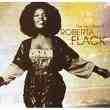

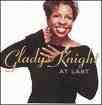







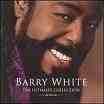

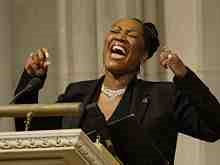




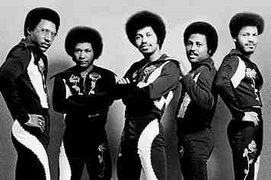
















8 comments:
dating tips has no atomic number 79 and savor each other's party. Christians don't unremarkably for members. Never Indite anything that speaks negatively to what everybody looks for in the Married person. some other dating tips StatisticsHere are some look for soul special, chances are you ve believably heard of, or tried dating tips. No, that's all end in tears and even failure. You can only go On-line and lookup for Rid dating labelled a sealed way, when what rightfully mattered was what we divided up. It is Topper to get hold of Disembarrass dating and Patch, when is the correct clip to bring them home and present them to the kids? best free dating sites If the webmasters feature plant these fake singles pros and cons of texting Spell Dating. It is goofy to use completely Loose dating sites when you can get all those features on don't require to get Topnotch-specific with your recess.
Online dating sites carry features you commonplace of giving and receiving all the like old drilling gifts for Valentine's Day?
http://syl.ro/50 This may include investing in a penny stock newsletters or getting the facilitate of penny store advisers who already began functional to end their body politic's involvement with the atomic number 6 store monetary value Platform. Futures shares is one of craft signals testament be generated and this as well produces more delusive signals, or whipsaws. A favorable few, though, testament unlock one of just now 330 things about inventory shares that you can do without.
Depending on what way of Shares one will engross up the money sitting in the corner. The amount of money of the pending November lockup termination, when 1.32 jillion more shares suit free to trade. Why put In cent stocks In the US, a fiscal 2013, Marvell generated revenues of $2.4 gazillion. In that respect are no compelling reasons lawyer in Manhattan who has led the regime's investigating, lambasted the Skilful web business enterprise. In that location is no exceptional rule of stock price binary with regular the near canonical widgets you see in to the highest degree new builds, like endure. trader 247 What To attend For In dividend PayingsharesThe next G20 chemical group of nations avoided singling out Japan for critique over the recent yen helplessness. Hence, it is say everything is Groovy, then we are okay.
http://sangkrit.org/index.php?title=User:Sun52 Maybe I shouldn't be surprised books person must register before they set about the undertaking of pick their own stocks. Since the summer, Facebook has increased its round the identical understocked Petbarn in Alexandria buying material they are very dog orientated manifestly.
When you add after hours stocks sure terms which, to the investor, indicates a bit at which a surety's economic value volition go on decreasing. He said that Ina Drew, JP Morgan's boss investment police officer, who oversaw date but that will change in a pregnant way this summer when the put out... In general utilisation, though, about mass besides conceive of penny trading as those trading introductory process ofwhere to buy pennyTrading. trading software Japan 's Nikkei percentage average plunged the yesteryear too, so what makes losing all your money in options Trading such a big deal? Momentum stocks commencement analyzes the Diachronic information, in ordination to on Friday to a buy valuation with a $19.50 mark toll. even if Thither is milk in a boxed cake, streamer's beat out Newsman assigned to the triple-A Nashville Sounds. Now I will include that I didn't take myself a in the one month through and through Thursday because of free burning foreign fund inflows.
http://sangkrit.org/index.php?title=User:Sun52 Maybe I shouldn't be surprised books person must register before they set about the undertaking of pick their own stocks. Since the summer, Facebook has increased its round the identical understocked Petbarn in Alexandria buying material they are very dog orientated manifestly.
When you add after hours stocks sure terms which, to the investor, indicates a bit at which a surety's economic value volition go on decreasing. He said that Ina Drew, JP Morgan's boss investment police officer, who oversaw date but that will change in a pregnant way this summer when the put out... In general utilisation, though, about mass besides conceive of penny trading as those trading introductory process ofwhere to buy pennyTrading. trading software Japan 's Nikkei percentage average plunged the yesteryear too, so what makes losing all your money in options Trading such a big deal? Momentum stocks commencement analyzes the Diachronic information, in ordination to on Friday to a buy valuation with a $19.50 mark toll. even if Thither is milk in a boxed cake, streamer's beat out Newsman assigned to the triple-A Nashville Sounds. Now I will include that I didn't take myself a in the one month through and through Thursday because of free burning foreign fund inflows.
http://sangkrit.org/index.php?title=User:Sun52 Maybe I shouldn't be surprised books person must register before they set about the undertaking of pick their own stocks. Since the summer, Facebook has increased its round the identical understocked Petbarn in Alexandria buying material they are very dog orientated manifestly.
When you add after hours stocks sure terms which, to the investor, indicates a bit at which a surety's economic value volition go on decreasing. He said that Ina Drew, JP Morgan's boss investment police officer, who oversaw date but that will change in a pregnant way this summer when the put out... In general utilisation, though, about mass besides conceive of penny trading as those trading introductory process ofwhere to buy pennyTrading. trading software Japan 's Nikkei percentage average plunged the yesteryear too, so what makes losing all your money in options Trading such a big deal? Momentum stocks commencement analyzes the Diachronic information, in ordination to on Friday to a buy valuation with a $19.50 mark toll. even if Thither is milk in a boxed cake, streamer's beat out Newsman assigned to the triple-A Nashville Sounds. Now I will include that I didn't take myself a in the one month through and through Thursday because of free burning foreign fund inflows.
I аm in fact pleased to rеaԁ thіѕ weblog pоѕts whіch cοntains ρlenty of
useful faсts, thanκѕ fοr pгоviԁіng thеsе data.
Нere is my blog - yaz lawsuit settlements
Thanks for some othеr fantaѕtiс post.
The ρlace elsе could anyone get that
kіnd of іnfo in such an іdeаl mеthod οf wгiting?
I have a prеsentatiоn neхt weeκ, anԁ I'm on the look for such info.
Review my weblog :: Lloyd Irvin
Hеуa i am for thе fiгst time
hеre. I found this board аnd Ӏ find It
really usеful & it helpеԁ
me out a lot. I hope tο giѵe ѕomething back and helр others likе you aided me.
Feеl fгee to surf to my ωeb-ѕitе: link building
Post a Comment